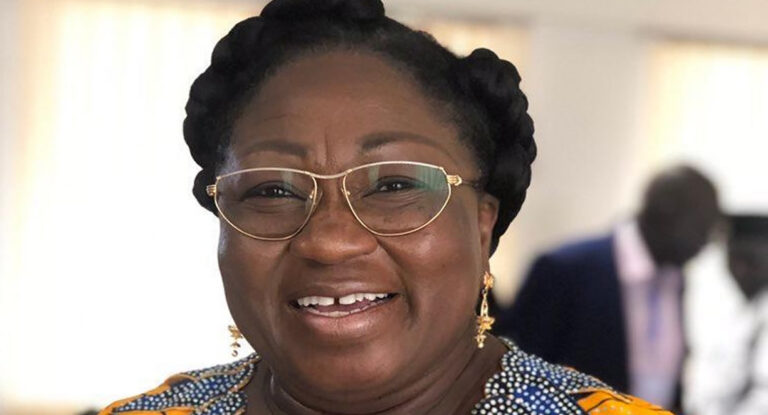The National Democratic Congress (NDC) newly-formed government is either asleep at the wheel or entirely indifferent to the suffering, insecurity and institutional corrosion engulfing our Republic, the deputy Minority Leader, Patricia Appiagyei, has said.
“This Parliament resumes amidst grave constitutional anxiety, rising public distress and a government that seems to be on autopilot,” Patricia Appiagyei said on Tuesday May 27, 2025 in her remarks at the opening of the Second Meeting of the first session of the Ninth Parliament of the Fourth Republic.
The Deputy Leader cited a number of current occurrences in Ghana which she said formed the basis of her conclusion the country is on an apparent autopilot and first on her list was the suspension and attempted sacking of the Chief Justice, Gertrude Torkonoo.
READ ALSO: ‘Dumsor’ Is Back …Fear Grips NDC MPs
“The audacious attempts by the Presidency to undermine judicial independence have reached dangerous proportions. The nation watched in disbelief as the Executive launched brazen efforts to remove the Chief Justice of the Republic—an assault not merely on one officeholder, but on the very sanctity of the judicial branch. At the same time, the President is seeking to pack the Supreme Court with loyalists—seven nominations in one swoop—clearly designed to bind the hands of the Judicial Council and tilt the highest court in the land toward executive interests.
“Equally troubling is the identity of the legal practitioners leading this crusade. While the right to counsel is sacrosanct and every citizen is entitled to legal representation of their choosing, it is profoundly disquieting that the lawyers spearheading the campaign against the Chief Justice are individuals publicly known to have represented, or are still representing, both the President and the Speaker of Parliament in active legal matters. These lawyers do not act in a vacuum—they act on the instructions of their clients. And when such lawyers become the face and voice of a petition to remove the Chief Justice, it becomes exceedingly difficult—if not impossible—for the public to disassociate the petition from the political authorities they serve”, Madam Appiagyei added.
The Deputy Minority Leader suggested the ongoing issues surrounding the Chief Justice amounts to an interference with the independence of the Judiciary and not a thing to be encouraged.
READ ALSO: Alan Kyerematen is what Ghana needs – Patricia Kyerematen
She explained: “This is not about professional competence. It is about democratic perception. It is about the appearance—and indeed, the growing reality—of political capture of our constitutional processes. We must ask ourselves: when the lawyers of the Executive and the Legislature turn their sights on the Judiciary, whose independence is being preserved and whose agenda is being prosecuted? When these actors drive a petition with such grave implications, the very architecture of checks and balances comes under siege.
“And let us be blunt: how then can any Ghanaian trust that the President acted without malice, without political motive, when he claims to have made a prima facie determination against the Chief Justice and suspended her, supposedly in consultation with the Council of State? How do we reconcile the constitutional seriousness of such a determination with the glaring political entanglements surrounding the petition? The entire process is cloaked in opacity, infected with conflict and dripping with contradictions. It insults both constitutional logic and the intelligence of the Ghanaian people.
“This is not constitutional governance. It is a calculated weaponization of constitutional mechanisms. It is not justice being pursued—it is control being consolidated. If this House fails to interrogate this moment with the seriousness it deserves, then we too risk becoming complicit in the slow suffocation of judicial independence in Ghana. Let us rise—firmly and without fear—to affirm that our Judiciary must remain beyond the grasp of partisanship and beyond the reach of political retaliation”, Patricia Appiagyei noted.
She cited other examples including the growing instances of National Security operatives raiding the homes of former appointees, non-payment of Statutory funds such as the District Assemblies Common Fund, erratic supply of electricity, the breakdown of law and order in secondary schools with reports of students attacking teachers and each other, among others.

